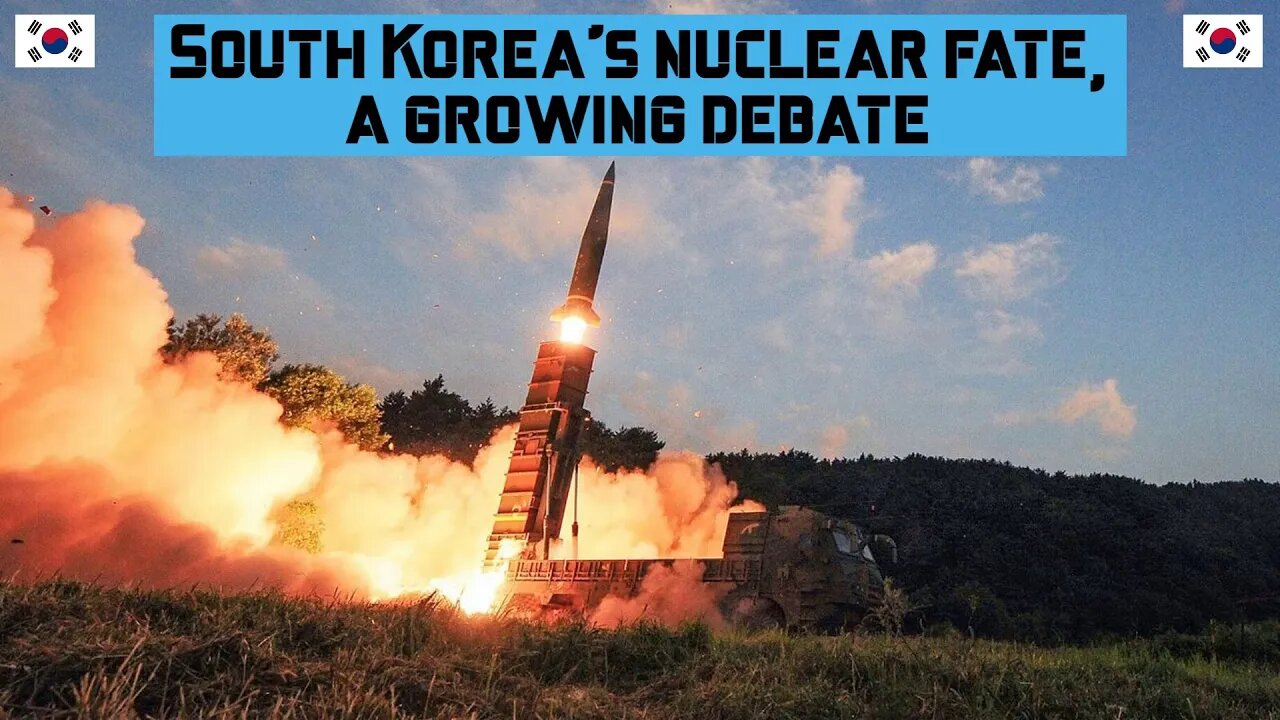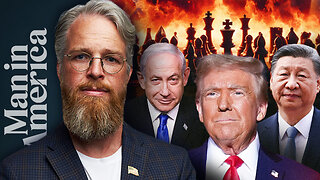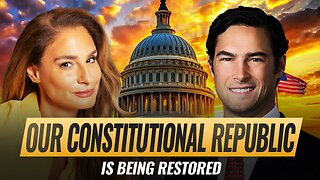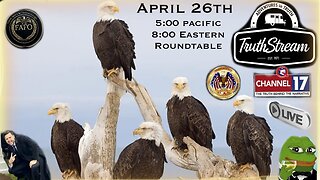Premium Only Content

South Korea's nuclear fate, a growing debate
Connect with us on Facebook: https://www.facebook.com/profile.php?id=100087951995959
Twitter: https://twitter.com/shieldwall_d
South Korea is facing a growing debate over whether to pursue its own nuclear weapons program in response to the escalating nuclear and missile threat from North Korea. Although the government has stated that it is not actively pursuing this policy, comments from political leaders and growing public support indicate that the issue cannot be simply ignored.
Polls show that support for an indigenous nuclear weapons program hovers around 70 percent among the South Korean public, meaning that the country's leaders could develop the bomb without fear of significant domestic backlash. However, the question South Korea is now asking itself is whether the benefits of doing so outweigh the costs.
The global nonproliferation regime, including the Treaty on the Non-Proliferation of Nuclear Weapons (NPT), has largely prevented new states from developing nuclear weapons for over half a century. Compliance with this regime is enforced through penalties and punishments, such as economic sanctions, which are imposed if states are found violating their safeguards agreements.
====================================
We appreciate all of our viewers and supporters. Thank you.
====================================
Fair use is the right to use a copyrighted work under certain conditions without permission of the copyright owner. The doctrine helps prevent a rigid application of copyright law that would stifle the very creativity the law is designed to foster. It allows one to use and build upon prior works in a manner that does not unfairly deprive prior copyright owners of the right to control and benefit from their works. Together with other features of copyright law like the idea/expression dichotomy discussed above, fair use reconciles the copyright statute with the First Amendment.
====================================
-
 2:08:05
2:08:05
Badlands Media
23 hours agoDevolution Power Hour Ep. 349: Trump’s Geopolitical Gambits, Sports Psyops, and the Regime’s Unraveling
87.4K75 -
 1:08:36
1:08:36
Man in America
15 hours agoUS, China, Israel & the Battle for the New World Order w/ Boone Cutler
89.3K67 -
 2:37:49
2:37:49
The Connect: With Johnny Mitchell
1 day ago $8.91 earnedBlackwater Mercenary EXPOSES Private Military War Secrets From The Middle East, Fueling Terrorism
42.7K42 -
 LIVE
LIVE
EXPBLESS
1 hour agoA Rare Sunday Morning Stream (Avowed LIVE Gameplay)
425 watching -
 2:54:21
2:54:21
Total Horse Channel
2 days ago2025 Scottsdale Arabian Horse Show | Saturday Evening Session
87.3K6 -
 LIVE
LIVE
BigDaddySlick78's Live Gaming Channel
3 hours ago🔴 Call Of Duty Warzone Rebirth Island & Area 99 Live w/ Subs #callofduty #warzone #bo6 #cod
79 watching -
 22:39
22:39
The Mel K Show
12 hours agoMel K & Representative Brandon Gill | Our Constitutional Republic is Being Restored | 4-26-25
63.4K51 -
 4:17:17
4:17:17
VapinGamers
11 hours ago $6.28 earned📣 Fortnite Family Night! - Games and Dubs with BrianZGame - !rumbot
54.6K4 -
 4:27:48
4:27:48
ThePope_Live
10 hours agoLIVE - First time playing The Finals in over a YEAR! Still good? with @Arrowthorn
41.5K1 -
 3:06:26
3:06:26
TruthStream with Joe and Scott
15 hours agoRoundtable with Patriot Underground and News Treason Live 4/26 5pm pacific 8pm Eastern
67.7K41